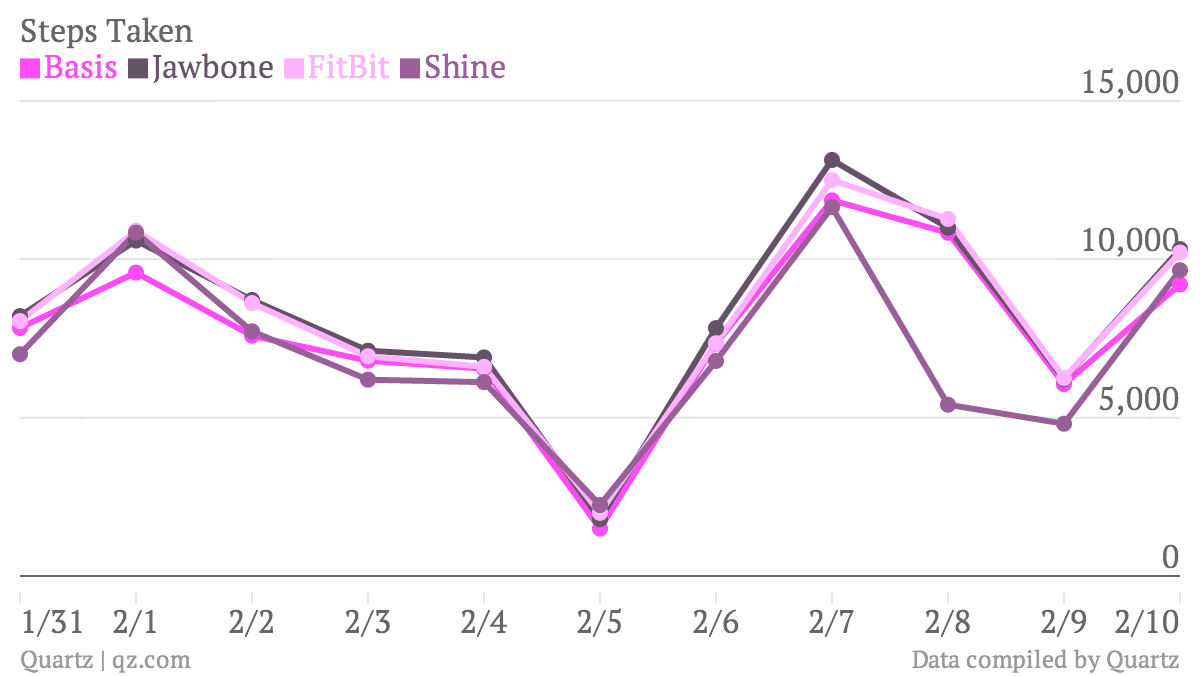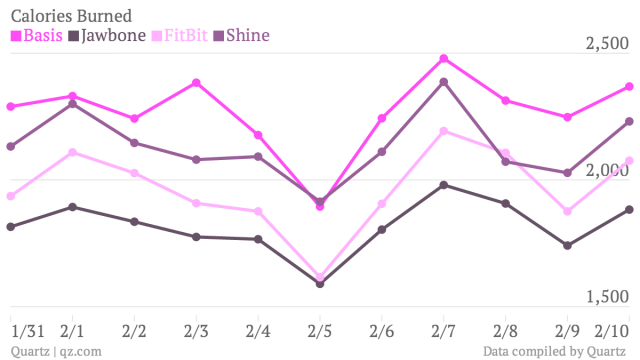I’ve previously looked at the ups and downs of tracking everything in my life , finding that the data helps provide a little guidance but is certainly nothing to live by. What I couldn’t tell, however, is how accurate that data actually was. Rachel Feltman, writer for Quartz, decided to wear four fitness trackers at once to find out.
As you can see above, the trackers all had very different estimates of calories burned in a day. Some were more optimistic than others, but clearly you shouldn’t rely on these devices to tell you this information. That said, step counts offered a better picture:

When it comes to fitness trackers, you don’t want to just spend a bunch of money on a glorified pedometer. The other data they provide should be reliable. That said, we’re only looking at two metrics here. Unless you really need to count on the exact estimated “calories burned” numbers your tracker provides, you might find what you’re looking for in the current available offerings.
If you need more accurate data, or at least enough features to overlook the current inaccuracies, just wait a bit. A fresh new batch of wearables is on the way this year so you’ll have plenty to choose from in no time.
Fitness trackers are no good at counting calories, and other lessons from wearing four at once [Quartz]

Comments